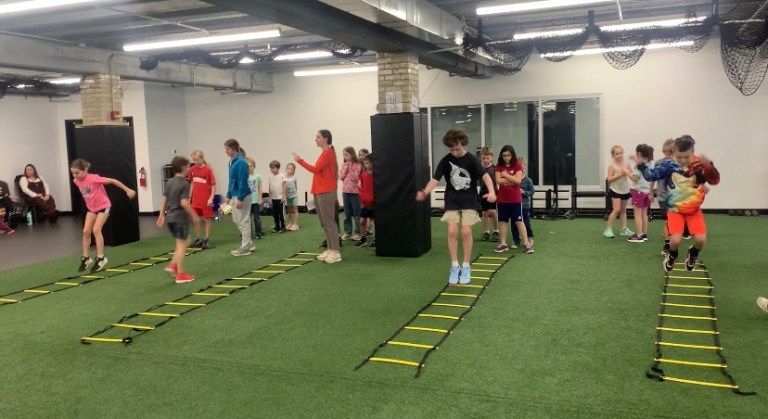Article
The Power of a Praying Coach
Where to turn when we feel powerless in the face of pressure and gravity
Jeff Friday
never miss a play
Get weekly articles on sport culture, relationships, and identity.
Just minutes before we (the Cincinnati Bengals) were about to take the field in Denver for a Week 16 matchup against the Broncos, I stopped in the coaches’ restroom for what would probably be my only opportunity for the next 3-5 hours.
As any NFL coach knows, from that first whistle to the last, coaching responsibilities take priority over, quite literally, everything else. Given how close we were to kickoff, I assumed I’d have the place to myself, but as I crossed from the carpet to the tile, I realized just how wrong I was.
Near the sinks, on the cold, hard bathroom floor, one of our coaches knelt in prayer. As I continued around the corner, sure enough, another prominent member of our coaching staff was on his knees, eyes closed, next to the stalls. In their own individual worlds, two different coaches — who I’d never seen pray on their own — silently cried out to God on their knees.
"Prayer permeates much of the NFL culture."
In 20 years of coaching, I’d never seen anything like it.
Although the scene took me by surprise, I could relate with those coaches. I felt what they felt. We were minutes away from the biggest game of our season — with significant playoff implications on the line — and I felt powerless in the face of such pressure and gravity.
I, too, felt a pull to seek out something greater, and higher, than myself.
In a profession defined by injury, risk and adversity (sixth-most perilous and fifth-most stressful profession in the U.S.), it makes sense that prayer permeates much of the NFL culture.
Pre-game, post-game, in the locker room, in the shower — prayer is a regular part of life as a pro football player, regardless of religious background. This was my experience not only in Cincinnati, but in Minnesota and Baltimore as well.
As humans, when we want something that’s outside of our own power, we have this natural sense to look beyond ourselves. This has been throughout human history (e.g. war, natural disasters, life-threatening situations).
Application
1. Create a prayer journal. Record your prayers regularly—requests, praises, conversations—and keep track of how God responds. Include prayers not only for yourself, but also others. Use the journal as a reminder to follow-through on promises to pray for those you love.
2. Make a list of all the times God has answered your prayers—from as far back as you remember. Keep the list with you at all times, to remind you of God’s faithfulness in your life.
3. Set up a regular time of prayer. If you’re new to it, start small, once a day—maybe in the morning, maybe before you go to bed. Build it into your schedule as a non-negotiable item.
Hardwired within our DNA is a tendency to recognize our own humanity, and prayer is often our method of humbly acting upon it. In his book, “Prayer: Experiencing Awe and Intimacy with God,” pastor Tim Keller writes, “To pray is to accept that we are, and always will be, wholly dependent on God for everything.”
As God’s creation, prayer is our lifeline. It’s our ultimate communication with our Creator. Whether through spoken words or internal thoughts, prayer provides a means of conscious, back-and-forth interaction between us and God.
The Bible tells us that God is near to us when we pray to Him (Psalm 145:18) — when we humbly present ourselves before Him. Prayer builds a relationship with God — a two-way relationship that not only allows us to make requests of Him, but also gives Him space to speak truth, wisdom and guidance into our lives.
God wants us to pray — in fact, He commands it (Luke 18:1). And it’s not just a command for the sake of a command. The benefits of prayer are prevalent and real.
Prayer unites us with God, and with other people. Meditative prayer can lower heart rate and blood pressure. And although God doesn’t always answer our prayers how we want or expect, prayer gives us access to a life of peace, hope, rest and love that God offers to all those who trust in Him.
Prayer is just one component of developing the spiritual building block of performance. You can read about the rest of the components and the other building blocks in my upcoming book, “Built 4 Winning: Crossing the Thin Line Between Good and Great in Sports, Business and Life.”
To order a copy of the book, click this link. Thank you for joining me on this journey toward winning in sport and life!
Jeff Friday is AIA’s Strength Coach in the Sport Performance Center. Jeff specializes in human development and performance. As an NFL Strength and Conditioning coach for 21 years, he has worked with elite athletes to get them to the top of their game. Now he teaches individuals and organizations how to develop the same championship mindset.
READ THE LATEST
Where sport culture, relationships, character, identity, and faith collide.



